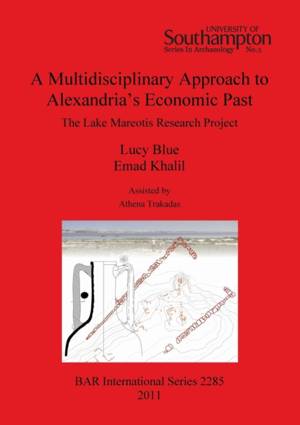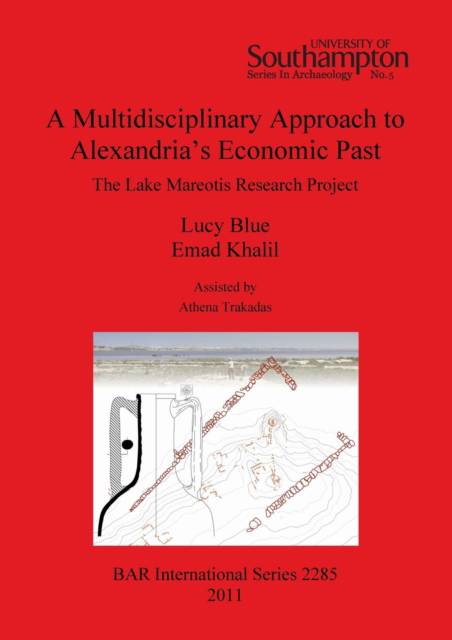
- Afhalen na 1 uur in een winkel met voorraad
- Gratis thuislevering in België vanaf € 30
- Ruim aanbod met 7 miljoen producten
- Afhalen na 1 uur in een winkel met voorraad
- Gratis thuislevering in België vanaf € 30
- Ruim aanbod met 7 miljoen producten
A Multidisciplinary Approach to Alexandria's Economic Past
The Lake Mareotis Research Project
Lucy Blue, Emad Khalil, Athena TrakadasOmschrijving
Between 2004 and 2008 the Centre for Maritime Archaeology (CMA), University of Southampton and the Department of Underwater Antiquities of the Egyptian Supreme Council for Antiquities (SCA), in conjunction with the Centre for Maritime Archaeology and Underwater Cultural Heritage (CMAUCH), University of Alexandria, conducted five seasons of survey along the shores of the western arm of Lake Mareotis, Alexandria, Egypt. This was to be the first systematic, comprehensive survey of the region, the aim being to more fully appreciate the nature of Lake Mareotis and the role it played in the economy of ancient Alexandria. An initial visit to the region in 2002 alerted the co-directors of the subsequent project, Lucy Blue (CMA) and Sameh Ramses (SCA), to the huge potential of the area, as well as the immediate threats that the archaeology of the region faced. In collaboration with Emad Khalil (CMAUCH), it was decided that funding to support a project should be sought. During a pilot season in 2004 over 60 sites were identified along the shores of the western arm of the lake, the majority of which were new discoveries. This volume is divided into seven chapters. The first three chapters outline the context of the research and the methodology adopted by the LMRP. Chapter 4 comments on the results of the ceramic survey and presents an appendix to this chapter. The ceramic assemblage is critical for understanding both the chronological scope of the material recovered that broadly equates to the mid 4th century BC to the 7th century AD, and the nature of activities at the sites. Chapter 5 sets the physical context and is the partial product of doctoral research undertaken. The geomorphological survey has provided invaluable new insight into the environmental context in which the archaeological sites should be viewed. Chapter 6 is essentially the 'meat' of the volume. Extending to 177 pages in length, it outlines a catalogue of all the 73 sites recorded as part of the LMRP. Chapter 7 presents some concluding remarks and an attempt is made to reflect on and make sense of the mass of information collated.
Specificaties
Betrokkenen
- Auteur(s):
- Uitgeverij:
Inhoud
- Aantal bladzijden:
- 313
- Taal:
- Engels
- Reeks:
- Reeksnummer:
- nr. 2285
Eigenschappen
- Productcode (EAN):
- 9781407308623
- Verschijningsdatum:
- 15/11/2011
- Uitvoering:
- Paperback
- Formaat:
- Trade paperback (VS)
- Afmetingen:
- 210 mm x 297 mm
- Gewicht:
- 1079 g

Alleen bij Standaard Boekhandel
Beoordelingen
We publiceren alleen reviews die voldoen aan de voorwaarden voor reviews. Bekijk onze voorwaarden voor reviews.











